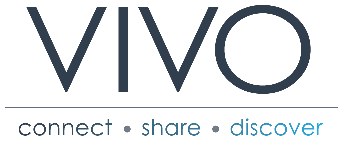VIVO Documentation
Old Release
This documentation relates to an old version of VIVO, version 1.10.x. Looking for another version? See all documentation.
The VIVO ontology 1 is used to represent the expertise of people engaged in the creation, transmission, and preservation of knowledge and creative works. The VIVO ontology (hereafter referred to as “the ontology”) represents expertise by describing the activities and accomplishments of people in terms of their relationships to particular artifacts of the work, resources they use, institutions that employ them, and other indicators. The ontology is independent of knowledge or creative domain. The ontology supports the identification, evaluation, and impact assessment of individual people and groups of people, as well as identification and reuse of the works of the people.
Ontology competency questions
Who are the people with expertise in subject w?
What people are available to work on activity x?
What is the scholarly output of institution y over time period t?
Which people have created or have proficiency in the use of resource z?
What patents, papers, awards, grants, datasets, art work, performances, credentials, or other evidence of expertise does a person have?
What is the scope of the expertise of an person? How is it limited in time, geography, or domain?
What is the provenance of the evidence regarding expertise?
Consequences and observations
The ontology requires precise identification of people, works, and the relationships between people and works.
There are many forms of evidence for expertise. These forms have common elements (authored materials, grants obtained, courses taught, education and training, service to the profession), while other forms may be domain specific, such as required by the Arts, Sciences, Education, Engineering, Law, Business, Agriculture, or Medicine 3 . The ontology is expected to be extended by related modules to represent forms of evidence of expertise that are domain or discipline specific. These forms need not appear in the VIVO ontology.
The ontology requires precise representation of entities that occur in the creation, transmission, and preservation of knowledge and creative works, including, but not limited to: institutions, geographical locations, time intervals and time points, and entities and properties forming the precise descriptions of the evidence for expertise.
Expertise is not limited to proficiency in particular activities, such as research. The creation, transmission, and preservation of knowledge and creative works is not limited to particular activities, nor to particular types of employment (faculty) nor to particular types of institutions (academic), nor to particular regions of the world.
